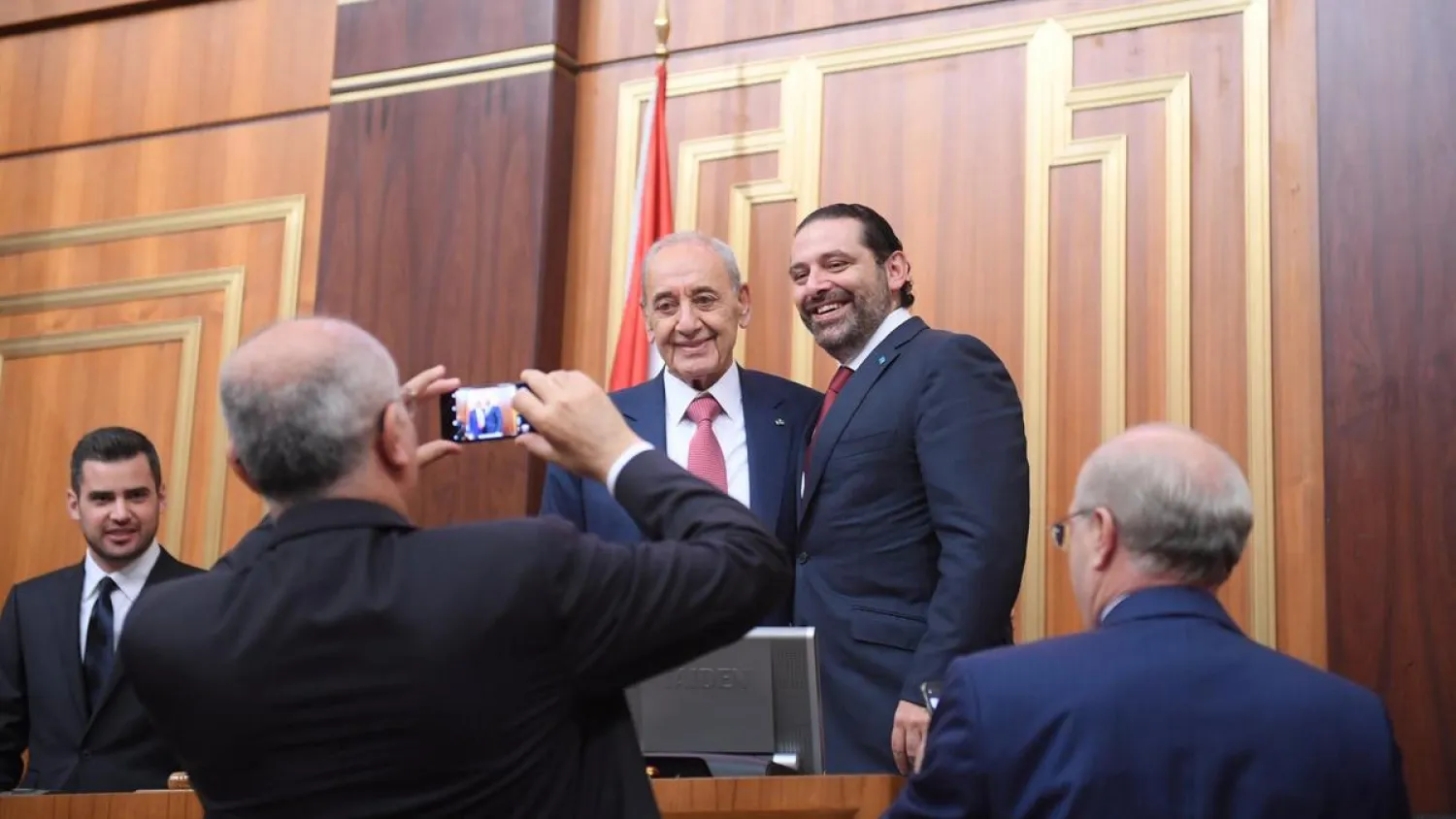Lebanon’s Prime Minister-designate Saad Hariri announced on Tuesday that if he stepped aside during the government formation process, he would not accept to be re-designated.
"If I step down from forming a government, I won’t accept being asked to form another one,” he told reporters before chairing the meeting of his parliamentary bloc.
The PM said the government would be formed within the next ten days because the country is in dire need of it, and the economic situation necessitates it and compels everyone to make concessions for the country.
Mohammad Chamseddine, a researcher with the Beirut-based research and statistics company Information International, told Asharq Al-Awsat that Lebanon’s fiscal deficit for this year would amount to $4 billion, while ministries, public institutions and municipalities suffer from excessive staff after hiring more than 10,000 employees in the past two years.
Facing the dire economic situation, Hariri said his optimism on the cabinet formation stems from his last meeting with President Michel Aoun.
He said all parties have made concessions including the Lebanese Forces and the Free Patriotic Movement.
However, Hariri pointed out that there are some changes in the distribution of portfolios, refusing to disclose the number of ministers that each party will get. “The only criterion I adopted in the formation is that it is a national accord government. When we set standards, we bind ourselves when forming any government in the future and this has no origin neither in the constitution nor in the customs,” he said.
Hariri denied any knowledge of a French initiative to help him form a government, stressing that the results of the CEDRE conference are in danger.
The international community had pledged $11 billion in loans and grants during the CEDRE conference in Paris last April to support Lebanon’s fragile economy.
“These funds were put to help the Lebanese economy but if the Lebanese don’t want to help themselves, is the world going to wait for them?”
He added: “There is a loan that was approved by the World Bank for Lebanon and we will lose it if the government and the parliament don’t approve it.”









